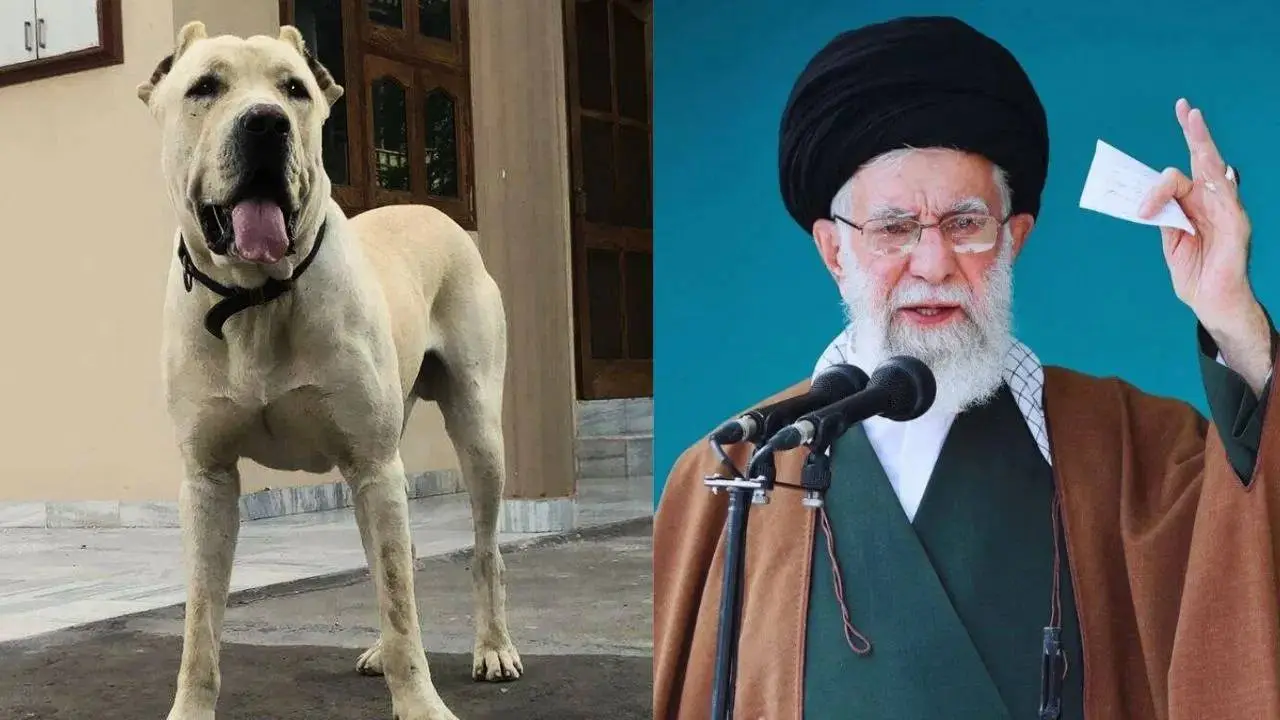
iran
International News: Iran’s Supreme Leader Ayatollah Khamenei opposes keeping dogs, viewing them as un-Islamic and a symbol of Western culture. Strict bans on dog-walking and ownership reflect deep religious and cultural beliefs about purity and societal values in Iran. In Iran, dogs are often viewed in a negative light, and this perspective is strongly influenced by religious and cultural beliefs. One of the most influential voices on this matter is Iran’s Supreme Leader, Ayatollah Ali Khamenei. His disapproval of dogs stems from a combination of religious interpretations and cultural values that have shaped Iranian society for decades. This article explores why Khamenei opposes dogs and how this view impacts everyday life in Iran.
In Islamic jurisprudence followed by many in Iran, dogs are traditionally regarded as impure animals, particularly because of their saliva, which is believed to be ritually unclean or “haram.” This belief has deep roots in religious teachings and has been reinforced by conservative elements within Iranian society. The idea that dogs carry impurities has led to strict social norms and legal regulations restricting contact with dogs, especially in public.
Ayatollah Khamenei has often emphasized that dogs should only be kept for specific practical purposes, such as hunting, guarding, or shepherding. Any form of keeping dogs as pets is generally discouraged and viewed as an adoption of Western habits that conflict with Islamic lifestyle values.
The Iranian government has enforced several measures to restrict dog ownership and public dog walking. In 2019, the capital city Tehran banned dog walking in public spaces, a decision that was later expanded to 18 other cities including Isfahan, Kerman, and Ilam. Carrying dogs in vehicles has also been made illegal. Officials justify these restrictions by claiming that allowing dogs in public places poses risks to public health and disturbs social peace. The government sees these bans as a way to maintain Islamic cultural norms and uphold what they consider to be moral standards.
Supreme Leader Khamenei’s stance on dogs has shaped public opinion and governmental policies. He views dog ownership outside functional uses as unnecessary and contrary to Islamic values. In 2021, seventy-five members of Iran’s Parliament publicly described dog keeping as a harmful habit that threatens the Islamic way of life. Khamenei’s views are influential, and his statements reinforce the conservative approach towards dogs in Iran. This influence extends beyond legal rules, affecting how the public perceives dogs and interacts with them.
Despite these restrictions and the official disapproval, keeping dogs is becoming increasingly popular, especially among Iran’s younger generation. For many young Iranians, owning a dog is more than just a hobby—it is seen as a subtle form of rebellion against the strictures of the regime. Experts suggest that activities such as dog ownership, skipping the hijab, attending underground parties, or consuming alcohol are symbolic acts of resistance against the rigid social and political climate. However, due to the legal and social risks, many dog owners walk their pets discreetly at night or in secluded areas to avoid police attention.
The crackdown on dog walking and ownership has sparked debates within Iran and internationally. Opponents argue that police focus on enforcing dog bans distracts from addressing more urgent issues like crime and violence. They see these measures as infringements on personal freedoms. On the other hand, the Iranian government defends the bans as necessary for protecting Islamic traditions and maintaining social order. For many Iranians, especially conservatives, dog walking is more than a simple pastime; it has become a symbol of cultural identity and religious adherence. Ayatollah Khamenei’s disapproval of dogs reflects deeper religious beliefs and cultural values that influence Iranian society. While the government enforces strict restrictions, changing social dynamics, especially among the youth, suggest a complex and evolving relationship with dogs in Iran.








Copyright © 2026 Top Indian News
